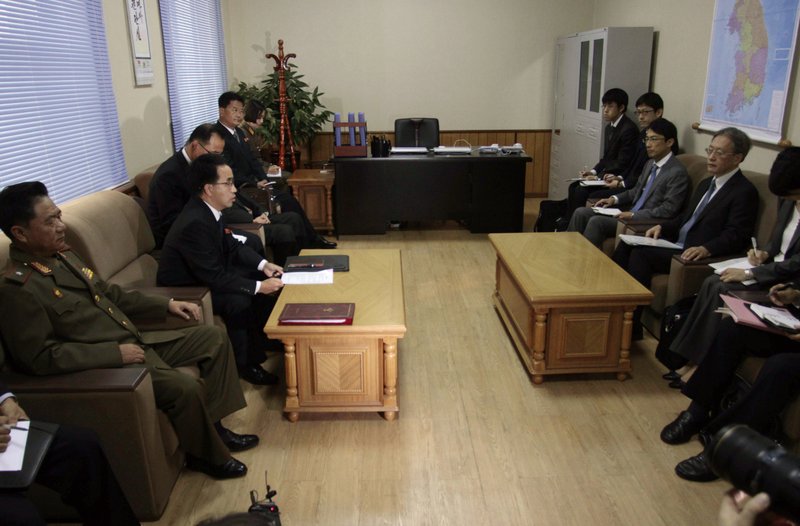TOKYO -- North Korea has reacted angrily to new sanctions announced by Japan over its recent rocket launch and said in response that it will halt an investigation into the fate of Japanese citizens it kidnapped decades ago.
Japan had eased some earlier sanctions on North Korea after it promised in 2014 to reinvestigate the kidnappings, which are a sensitive matter in Japan. The North has repeatedly delayed providing results from the probe.
Japan announced new sanctions Wednesday that include expanded restrictions on travel between the two countries and a complete ban on visits by North Korean ships to Japan.
North Korea's official Korean Central News Agency on Friday slammed the sanctions, calling them "provocative acts of hostility." It said that in response, the committee formed to investigate the abductions had been dissolved and the probe will be "totally stopped." It also warned of additional stronger countermeasures.
In 2002, North Korea admitted to kidnapping 13 Japanese in the 1970s and '80s to train spies in Japanese language and culture. Five were allowed to return to Japan the same year, and North Korea says the others died or never entered the North.
Japan believes hundreds more may have been abducted and that many may still be alive.
Investigating the abductions issue is a top political priority for Prime Minister Shinzo Abe, who has long promised families of those who disappeared to seek answers and, if possible, the return of any still alive.
A group of families of the abductees issued a statement saying they supported the government's stricter sanctions against Pyongyang, and were unhappy over "a complete lack of effort [by North Korea] to resolve the issue."
"We hope that new, real progress and the earliest possible rescue of the victims will follow from these stronger sanctions," it said.
In announcing the new sanctions, Japanese Chief Cabinet Secretary Yoshihide Suga said Japan hoped to keep a door open for dialogue to resolve the fate of the abductees.
North Korea launched a rocket Feb. 7 carrying what it said was an Earth observation satellite into space. The launch, which came about a month after the country's fourth nuclear test, was quickly condemned by outsiders as a test of banned ballistic missile technology.
The Pentagon said, in a new report to Congress on the regime's military capabilities, that North Korea continues to develop a mobile intercontinental ballistic missile that "would likely be capable of reaching much of the continental United States."
The KN-08 missile would have an estimated range of more than 3,400 miles, and North Korea already has six "road-mobile" launchers for it, according to the annual report delivered to congressional committees Friday and obtained by Bloomberg News. A mobile missile can be harder to track than a silo-based weapon, although the threat from the KN-08 depends on whether it's "successfully designed and developed," the Defense Department cautioned.
The new report reaffirms a judgment about the KN-08 made by the Pentagon in 2013.
Other sections of the Defense Department report said that North Korea:
• Is pursuing the capability to launch ballistic missiles from submarines, reflecting "the regime's commitment to diversifying its missile force."
• Views offensive cyber operations as a tool "it can employ with little risk from reprisal attacks, in part because its networks are largely separated from the Internet."
• May consider the use of chemical and biological weapons.
U.S. intelligence on North Korea depends in part on watching the country's annual military parades, an exercise that spawns debate about whether the equipment displayed is functional or mock-ups. Four missiles on KN-08 launchers in an October parade were "noticeably different" from those shown off before, according to the report, which assumes the weapons displayed "are generally representative of missiles that will be fielded."
Information for this article was contributed by Elaine Kurtenbach of The Associated Press and by Jonathan Tirone, Tony Capaccio and Clement Tan of Bloomberg News.
A Section on 02/14/2016

